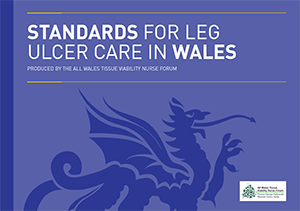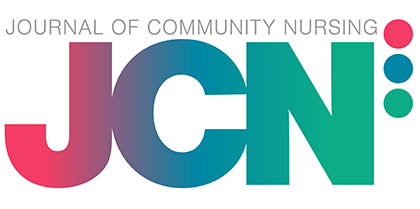
Addressing chronic leg conditions from assessment to healing
Community nursing is challenging at the moment. We, as practitioners, need to ensure that our patients have access to the right care at the right time.

The burden of wounds: start exploring the reality of wound healing
The prevalence of lower limb ulceration, lack of evidence-based care, and poor healing outcomes, as found in Guest et al’s seminal study (2015), have highlighted the need for investment and focus in this area of care.

Day-to-day experience of healing venous leg ulcers using a premoistened debridement cloth and adjustable wraps with measurable compression
Treating leg ulcers plays a large part in the daily life of community and district nurses. This supplement includes expert comment on innovative products, as well as clinical articles on how best to treat patients and prevent recurrence.

JCN Roadshow booklet 2015
A day of community nursing education
Nelson Mandela said that 'education is the most powerful weapon you can use to change the world', and while the world might be slightly out of reach for most of us, here at the JCN we do believe that remaining interested in our working environment and making a little difference everyday can help to change practice, and even the culture of our workplaces. Education doesn't necessarily have to come from great institutions or eminent professors — it can be found in the skill of our colleagues or by listening to patients' previous care experiences.

Focus on wound care in the community
The future of wound care is in the community
What a busy year it has been for wound care in the UK, with the European Wound Management Association (EWMA) conference in London this year showing just how far UK nurses and clinicians have come in making tissue viability a specialty that demands attention. It has also been an exciting year for the Wound Care Alliance UK, with our own annual conference continuing where it left-off last year, with an event that highlighted all the good work being done by wound care clinicians right across the UK.

Reducing the burden of chronic wounds in the community using single use NPWT
Kick start wound healing with PICO™
This supplement contains the following articles: "Editorial: we need to reduce the future burden of chronic wounds", "Wound chronicity", "What is the mode of action of negative pressure wound therapy?", "Using disposable negative pressure wound therapy in the community", and "Case reports demonstrating the use of PICOTM in clinical practice".

Case report series of Actilite Protect®: an eight-patient evaluation
JCN supplement 2015, vol 29, issue 4
This case report series explores the use of Actilite Protect® (Advancis Medical), a new dressing that combines a hydrophilic foam dressing with a soft silicone wound contact layer and border, while also containing medical grade Manuka honey and a Manuka oil dissolvable film.
The evaluations provide an overview of the dressing’s performance on a variety of non-healing wounds in a predetermined time period. Patient and clinician feedback also give an insight into how this modern dressing, that utilizes honey technology, can be both clinically and cost-effective and contribute to improved quality of life.

Use of Granulox® haemoglobin spray in clinical practice: a case report series
The case reports included in this document explore the use of Granulox® haemoglobin spray (infirst Healthcare) for the treatment of patients with chronic and acute wounds, and demonstrate the versatility and ease of use of this new treatment modality. In addition, the positive impact that Granulox had on patient quality of life can be seen by the patients’ reduction in pain and improvements in activities of daily living, as their longstanding wounds started to heal.

Wound care in the community
Wound care is not without its challenges in the community setting, where management of heavy exudate, and timely detection and prevention of infection can be difficult. This supplement helps to keep you abreast of the latest wound treatments and techniques, while also focusing on the importance of providing patient-centred wound care.

Challenging your practice: venous leg ulcers
Evidence-based practice is key to achieving good clinical outcomes on tight budgets. Challenge your practice in leg ulcer management by reading this supplement to ensure that your practice is well-informed, rather than ritualistic.

Evaluation of a dynamic mattress replacement system within a community setting
With organisations being challenged to reduce the incidence of avoidable pressure ulcers and their development being seen as indicators of the quality of care provided, organisations need to ensure that they choose the most appropriate products for pressure ulcer prevention. This evaluation by the NHS Midlands and East Strategic Health Authority determined the clinical and cost-effectiveness of a dynamic mattress replacement system across three community hospitals and collected feedback from both the patients and clinicians on the system’s performance.

Chronic oedema - best practice in the community
Chronic oedema is an under-recognised, growing condition in the community. Make sure you identify it and intervene early to improve outcomes for you and your patients..

Standards for Leg Ulcer Care in Wales
This document has been developed by a sub-group of the All Wales Tissue Viability Nurse Forum (AWTVNF) using the best evidence available and expert opinion from AWTVNF members. The purpose of the document is to set minimum standards for leg ulcer prevention and management.
